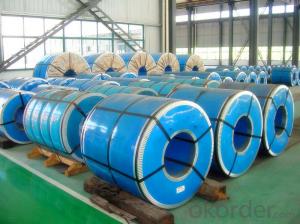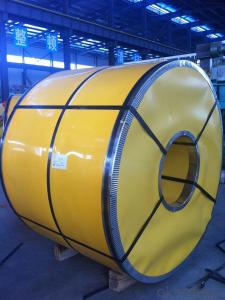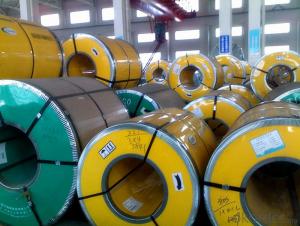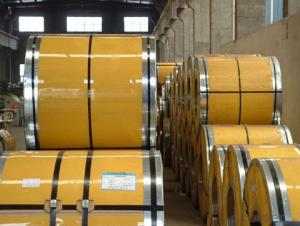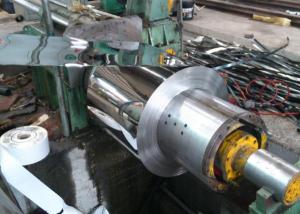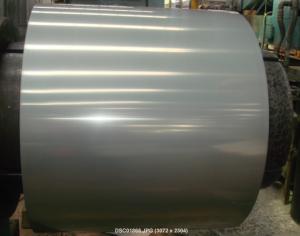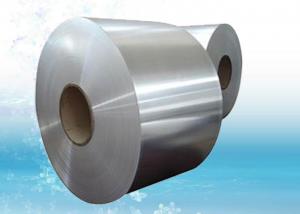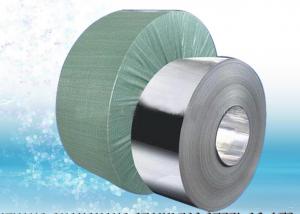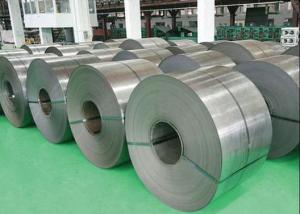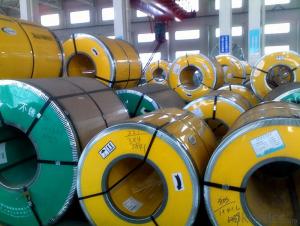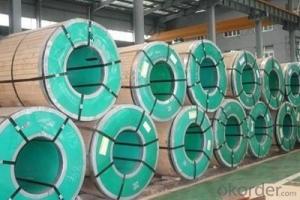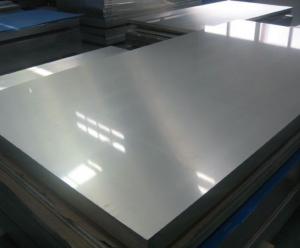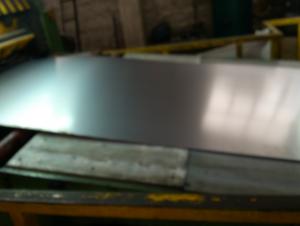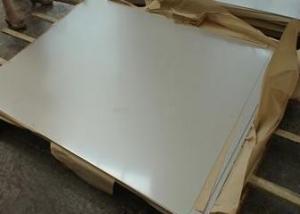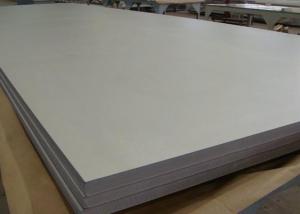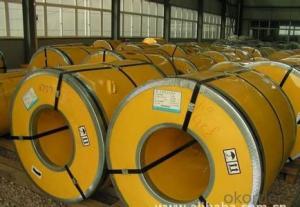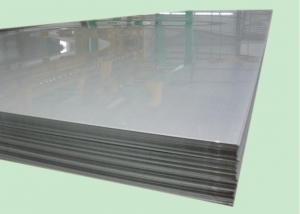Stainless Steel Coil 304 Hot Rolled Wide Strip No.1 Finish
OKorder Service Pledge
OKorder Financial Service
You Might Also Like
304 Stainless Steel Coil Hot Rolled Annealing and Pickling No.1 Finish Wide Strip
1.surface:NO.1
2.standard:JIS, AISI, GB
3.width: 0.55m
304 Stainless Steel Coil Hot Rolled Annealing and Pickling No.1 Finish Wide Strip Chemical Composition:
(%):C=0.07, Mn=2.00, P=0.045, S=0.030, Si=0.075, Cr=17.5-19.5, Ni=8.0-10.5, N=0.10
304 Stainless Steel Coil Hot Rolled Annealing and Pickling No.1 Finish Wide Strip Physical Properties
Tensile strength σb (MPa) ≥ 520
the conditions yield strength σ0.2 (MPa) ≥ 205,
elongation δ5 (%) ≥ 40
Reduction of ψ (%) ≥ 50,
hardness: ≤ 187
HB; ≤ 90
HRB; ≤ 200H
304 Stainless Steel Coil Hot Rolled Annealing and Pickling No.1 Finish Wide Strip
Type | 304 Stainless Steel Coil Hot Rolled Annealing and Pickling No.1 Finish Wide Strip |
Thickness | 3.0mm-4.0mm |
Width | 1000mm, 1219mm, 1240mm, 1500mm |
Length | according to weight |
Brand name | CNBM |
Standard | ASTM, AISI, DIN, GB, JIS etc |
Material | 304 |
Application | Foodstuff, Gas, metallurgy, biology, electron, chemical, petroleum, boiler, nuclear energy, Medical equipment, fertilizer etc |
Package | Standard export sea-worthy packing |
Delivery time | Within 15 days since getting the deposit or LC origin |
Surface | NO.1 |
Productivity | 20000 tons/month |
- Q:Can stainless steel strips be heat resistant?
- Indeed, heat resistance is a characteristic possessed by stainless steel strips. Stainless steel is renowned for its exceptional ability to withstand both heat and corrosion. The temperature endurance of stainless steel strips varies depending on the specific grade utilized, ranging from a few hundred degrees Celsius to well over a thousand degrees Celsius. This invaluable quality renders stainless steel strips highly suitable for a diverse range of applications that demand resistance to elevated temperatures, including but not limited to the automotive, aerospace, and industrial sectors. Moreover, the heat resistance properties of stainless steel also make it an optimal choice for cookware, oven components, and various household appliances that are constantly exposed to intense heat.
- Q:Can stainless steel strips be used in the aerospace manufacturing industry?
- Yes, stainless steel strips can be used in the aerospace manufacturing industry. Stainless steel is a highly versatile material that offers a unique combination of strength, durability, and resistance to corrosion, making it ideal for various aerospace applications. Stainless steel strips can be used in the production of aircraft components such as structural frames, fuel tanks, exhaust systems, and engine parts. Additionally, stainless steel's high-temperature resistance and ability to withstand extreme conditions make it suitable for aerospace applications where the material needs to maintain its integrity under demanding environments. Overall, stainless steel strips are a reliable and widely used material in the aerospace manufacturing industry.
- Q:Can stainless steel strips be used in the food and beverage industry?
- Yes, stainless steel strips can be used in the food and beverage industry. Stainless steel is widely used in this industry due to its excellent corrosion resistance, durability, and hygienic properties. It does not react with food or beverages, ensuring that there is no contamination of the products. Stainless steel strips are commonly used for various applications in the food and beverage industry, such as food processing equipment, storage tanks, piping systems, conveyor belts, and kitchen utensils. The smooth and easy-to-clean surface of stainless steel makes it ideal for maintaining high levels of cleanliness and preventing the growth of bacteria. Additionally, stainless steel is resistant to high temperatures, making it suitable for food and beverage processing and cooking applications. Overall, stainless steel strips are a reliable and safe choice for use in the food and beverage industry.
- Q:How does the price of stainless steel strips compare to other materials?
- The price of stainless steel strips tends to be higher compared to other materials due to its durability and corrosion resistance. However, it offers excellent long-term value and is often preferred for applications where strength and resistance to wear and tear are crucial.
- Q:What is the difference between austenitic and martensitic stainless steel strips?
- Austenitic stainless steel strips have a face-centered cubic crystal structure, which provides high corrosion resistance, excellent formability, and good weldability. On the other hand, martensitic stainless steel strips have a body-centered cubic crystal structure, making them harder and more brittle than austenitic steel. Martensitic steel is known for its high strength and hardness, but it sacrifices some of the corrosion resistance and formability found in austenitic steel.
- Q:Can stainless steel strips be used in pharmaceutical storage containers?
- Pharmaceutical storage containers can indeed utilize stainless steel strips. The pharmaceutical industry often relies on stainless steel due to its exceptional corrosion resistance and durability. It is a frequently employed material that can withstand harsh cleaning agents and disinfectants, making it highly suitable for the storage of pharmaceutical products. The use of stainless steel strips in the construction of pharmaceutical storage containers guarantees the preservation and safety of the stored drugs. Furthermore, stainless steel is non-reactive and does not release any harmful substances into the medications, ensuring their purity and efficacy. In summary, stainless steel strips are a dependable and appropriate choice for pharmaceutical storage containers.
- Q:Can 111 stainless steel strips be used in the pharmaceutical industry?
- Certainly! The pharmaceutical industry can indeed utilize 111 stainless steel strips. Renowned for its resistance to corrosion, durability, and hygienic characteristics, stainless steel proves suitable for diverse applications within the pharmaceutical sector. The grade 111 stainless steel typically denotes AISI 304 stainless steel, a widely employed grade in pharmaceutical equipment and infrastructure. This grade boasts resistance to various chemicals and can withstand high temperatures, rendering it an ideal choice for pharmaceutical processing equipment such as tanks, vessels, and pipes. Moreover, stainless steel strips find utility in packaging, ensuring the preservation and safety of pharmaceutical products. In summary, 111 stainless steel strips offer reliability to the pharmaceutical industry owing to their exceptional properties and adherence to the industry's stringent requirements.
- Q:Can stainless steel strips be used in the production of HVAC grilles?
- Yes, stainless steel strips can be used in the production of HVAC grilles. Stainless steel is a durable and corrosion-resistant material, making it suitable for HVAC applications. It provides strength and longevity, ensuring the grilles can withstand the demands of heating, ventilation, and air conditioning systems.
- Q:How do stainless steel strips resist staining?
- The resistance of stainless steel strips to staining is primarily attributed to the presence of chromium in their composition. Chromium generates a passive layer on the surface of the stainless steel, serving as a protective barrier against corrosion and staining. This protective layer is created through the reaction between chromium and oxygen in the atmosphere, resulting in the formation of a thin oxide film that hinders further oxidation and staining of the steel. Moreover, stainless steel strips may contain other alloying elements like nickel, molybdenum, and nitrogen, which further bolster their resistance to staining. The combination of these elements and the establishment of the passive layer renders stainless steel strips exceptionally resilient to staining, even in demanding conditions or when exposed to corrosive substances.
- Q:Can stainless steel strips be used in the food processing equipment industry?
- Yes, stainless steel strips can be used in the food processing equipment industry. Stainless steel is a popular material choice in the food processing industry due to its many beneficial properties. It is corrosion-resistant, which is essential in an environment where food and liquids are present. Stainless steel is also hygienic and easy to clean, making it suitable for equipment that comes into contact with food. Additionally, stainless steel has high strength and durability, ensuring that the equipment can withstand the rigorous demands of the food processing industry. Therefore, stainless steel strips are commonly used in the manufacturing of food processing equipment such as conveyors, mixers, slicing machines, and food storage containers.
1. Manufacturer Overview |
|
|---|---|
| Location | |
| Year Established | |
| Annual Output Value | |
| Main Markets | |
| Company Certifications | |
2. Manufacturer Certificates |
|
|---|---|
| a) Certification Name | |
| Range | |
| Reference | |
| Validity Period | |
3. Manufacturer Capability |
|
|---|---|
| a)Trade Capacity | |
| Nearest Port | |
| Export Percentage | |
| No.of Employees in Trade Department | |
| Language Spoken: | |
| b)Factory Information | |
| Factory Size: | |
| No. of Production Lines | |
| Contract Manufacturing | |
| Product Price Range | |
Send your message to us
Stainless Steel Coil 304 Hot Rolled Wide Strip No.1 Finish
OKorder Service Pledge
OKorder Financial Service
Similar products
New products
Hot products
Related keywords
